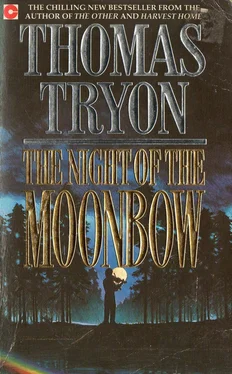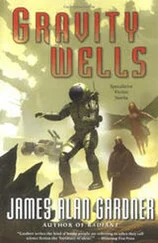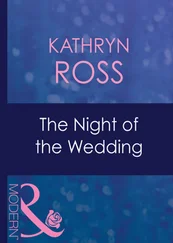Thomas Tryon - The Night of the Moonbow
Здесь есть возможность читать онлайн «Thomas Tryon - The Night of the Moonbow» весь текст электронной книги совершенно бесплатно (целиком полную версию без сокращений). В некоторых случаях можно слушать аудио, скачать через торрент в формате fb2 и присутствует краткое содержание. Жанр: Триллер, на английском языке. Описание произведения, (предисловие) а так же отзывы посетителей доступны на портале библиотеки ЛибКат.
- Название:The Night of the Moonbow
- Автор:
- Жанр:
- Год:неизвестен
- ISBN:нет данных
- Рейтинг книги:3 / 5. Голосов: 1
-
Избранное:Добавить в избранное
- Отзывы:
-
Ваша оценка:
- 60
- 1
- 2
- 3
- 4
- 5
The Night of the Moonbow: краткое содержание, описание и аннотация
Предлагаем к чтению аннотацию, описание, краткое содержание или предисловие (зависит от того, что написал сам автор книги «The Night of the Moonbow»). Если вы не нашли необходимую информацию о книге — напишите в комментариях, мы постараемся отыскать её.
The Night of the Moonbow — читать онлайн бесплатно полную книгу (весь текст) целиком
Ниже представлен текст книги, разбитый по страницам. Система сохранения места последней прочитанной страницы, позволяет с удобством читать онлайн бесплатно книгу «The Night of the Moonbow», без необходимости каждый раз заново искать на чём Вы остановились. Поставьте закладку, и сможете в любой момент перейти на страницу, на которой закончили чтение.
Интервал:
Закладка:
When she had brought the final passage to its close, she let her hands drop into her lap while the boys’ applause echoed about the room. As a group they had settled down now and become serious music-appreciators; no one fidgeted, no one giggled, no one looked bored. Dagmar smiled at the professor, and at Fritz, and after a moment she began again, this time the Moonlight Sonata. Her strong, wrinkled face expressed a simplicity of effort, as if the creation of such perfection of sound were the easiest trick in the world to manage, and once or two times more Leo felt that her wandering eye was seeking him out.
Then, rather than following the sonata’s first, slow movement with the second, faster one, she stopped playing, and before anyone could react, tiddled the notes of “Kitten on the Keys” – her little joke.
“More! More! Encore!” the boys called, laughing.
But instead she sat, neck straight, head erect, her eyes now resting on Leo. Well, they seemed to say, what about it, my young friend? Are you willing? Or will you still sit there on my pretty velvet settee, stubborn and afraid? This is your last chance. Will you let the moment pass? Leo hesitated. He knew that everyone was waiting for Dagmar to say or do something, unaware that she was waiting for him. He slid his eyes to Reece, who leaned casually against the wall, his expression unreadable behind his dark glasses,- then drew another breath, and in that breath, suddenly in his mind he stood apart from himself; it was as if he had become another person, a disinterested party, someone else altogether. He saw himself getting to his feet, nodding to the professor, who sat very straight, his look filled with anticipation, saw himself walking away from the settee toward the piano, toward those blue-gray eyes. He placed his fingertips lightly on the neck of his violin. His brows rose; a silent question was both asked and answered. Now Dagmar smiled. How did she know? But she did, she did. He heard a clock striking somewhere, in another room, as if in some other house, but its message was clear. The hour was his. Now was the moment. He would play; must play.
Since they had already agreed on a selection – the “Traumerei” he had worked on – there seemed nothing more to do but begin. Jutting out his chin, he nestled the instrument into the nook of his shoulder, took a deep breath, glanced at Dagmar. She gave him a tiny nod, then leaned forward slightly, bringing her body into play, and her fingers softly sounded the first piano chords.
He began, sliding his bow across the strings, making music – awful music. The notes were on key, but they were parched notes, without luster, passionless. He struggled for mastery, attempting to focus his gaze on a neutral line above the sight line of his audience – but found his eyes straying helplessly to Reece.
Please, help me, he silently prayed. Prayed for. 1 l›‹›ml› to be dropped on the roof and blow him up, violin and. ill Surely he could not go on. Better to quit now. Crazy to think he could get away with it this time. Then he struck a wrong note full out; its wretched sound screeched in his ear. Mortified, he glanced impulsively at Dagmar, and as though on cue her eyes met his. He expected reproach, but saw none. Instead, in that moment he recalled the words she had tried to impress on him: words about reaching out, about being hard as steel, about letting no one stand in your way. Make the most of your moment when it comes – seize it, seize it, he heard her saying. Carpe diem, carpe diem.
He must go on, he must. As he repeated these words over and over in his mind, something began to happen: a warm, comforting wave washed over him and suddenly he felt safer, calmer, more relaxed. His breathing came more easily, then the musical tone itself began to alter, the notes vibrated differently, they stretched themselves out, richly, roundly, his bow glided more smoothly and effortlessly.
Again his eye swung to Dagmar, bent over the keys, her body “helping the music,” playing effortlessly, with great delicacy, traces of a smile now on her lips. Yes, she seemed to be saying. This. This is what I hoped to hear, these notes, this music… this, my young friend…
Beyond the doors and windows, the sky had darkened so that additional lights had to be switched on to illuminate the room, their beams throwing circles across the plastered ceiling. As Dagmar took a hand from the keyboard to switch on the little vellum-shaded lamp at her shoulder, Leo’s glance flicked along the row of faces, moving from one camper to the next, from Tiger to the Bomber, to Emerson Bean and Junior Leffingwell, from Pete Melrose to Gus Klaus and Oggie Ogden, all listening to him.
The piece ended, too soon, he thought, and marveled that it had gone so quickly. “On the wings of song,” wasn’t that what she’d said? To fly on wings?
He heard the applause, saw Fritz’s nod of approval, and he glanced again at Dagmar, waiting awkwardly while she riffled through the stack of music at her elbow. Approving a selection, she beckoned him to her side. When he saw its title, he felt a pang of fear. It was the Paganini Caprice in A Minor. But before he could protest she was off. He must follow. He touched his bow lightly to the strings, jerked his chin up, and he was off too. There, you’ve got it, he told himself as the notes danced into the air, light and bright and intricate, like so many children at play. His bowing hand flew, and his spirit soared with the music. He glanced at Professor Pinero, who sat now with his head against the back of his chair, eyes almost closed, on his face what Leo judged to be a look of approval. Glancing sideways now, he kept his eye on the tip of his bow. It was moving with control and rhythm, the angle changing as it made itself felt upon the strings, the bony wrist and long, thin fingers drawing forth the music. And, ah, the music! The melody seemed to pour from the curved belly of the violin to float upward to the ceiling, then come flooding down and out, filling all ears. He was performing with an assurance that was undeniable, his body hunching, tilting, swaying as he drew the melody to its sharp, pizzicato ending.
There was a moment’s silence. Dagmar took her fingers from the keys, eyes shining with pleasure, while Leo, stiffly dropping his arms and instrument to his sides, stared at the floor. Then the wave of applause washed over him. A deep peal of thunder sounded, rolling across the valley, ominous in the way of all thunderclaps heralding storms, yet, for Leo, somehow a sovereign sign of his victory. He glanced at Reece, who was applauding -perfunctorily? – with the others. Swallow that, Heartless, he thought, giddy with happiness. Chew on those glissandos awhile.
Not knowing what else to do, be bowed slightly, catching sight of the smiling professor, who called, “Encore, encore!,” to which solicitation Dagmar added her own, beckoning him with a curled finger and asking what pine he would give his audience now.
“Poor Butterfly” was Leo’s choice. He plucked a string, giving Dagmar the key, and the room quieted again, but before they could begin their attention became unfocused, as outside, with a swift inevitability, the rain began to fall, first in a spasmodic patter, big, fat drops playing a ploppy sort of drumbeat on the tree leaves, beating on the roof; then, after this prelude, as if making up its mind to spend its force in a single assault, in an overwhelming surge.
Inside the room, once more the musicians picked up their cue and began to play. Once again Leo felt his eye drawn to Reece – and he knew surprise, elation, jubilation. Whatever Reece was now or might yet become, when Leo played he was every bit as good, every bit as powerful, as rich, as glamorous. He turned his eyes back to Dagmar, whose eyes enlarged fractionally, telegraphing her message: Fine, keep it up. And he thought, What if I hadn’t tried? What if she hadn’t made me? Would I ever have known this feeling? See what we’ve accomplished, her smile seemed to be telling him. Isn’t this rich? Isn’t this fun?
Читать дальшеИнтервал:
Закладка:
Похожие книги на «The Night of the Moonbow»
Представляем Вашему вниманию похожие книги на «The Night of the Moonbow» списком для выбора. Мы отобрали схожую по названию и смыслу литературу в надежде предоставить читателям больше вариантов отыскать новые, интересные, ещё непрочитанные произведения.
Обсуждение, отзывы о книге «The Night of the Moonbow» и просто собственные мнения читателей. Оставьте ваши комментарии, напишите, что Вы думаете о произведении, его смысле или главных героях. Укажите что конкретно понравилось, а что нет, и почему Вы так считаете.












